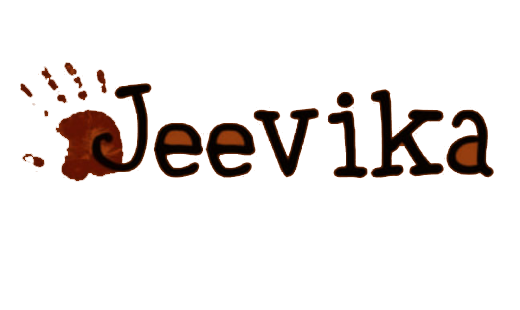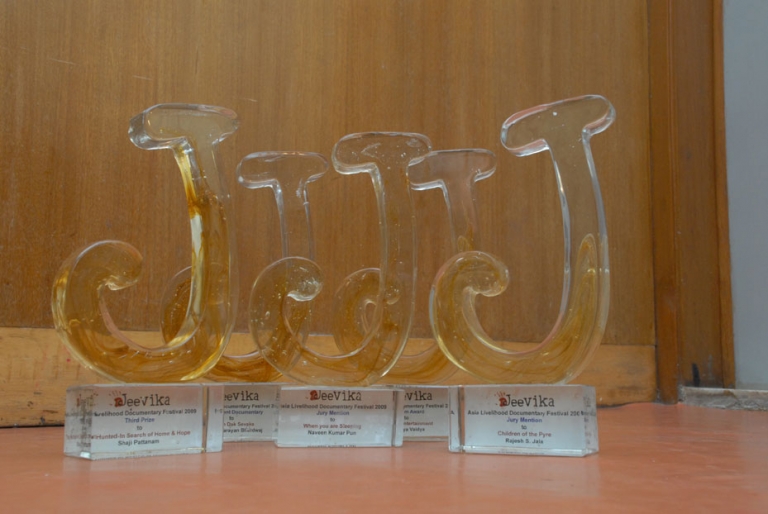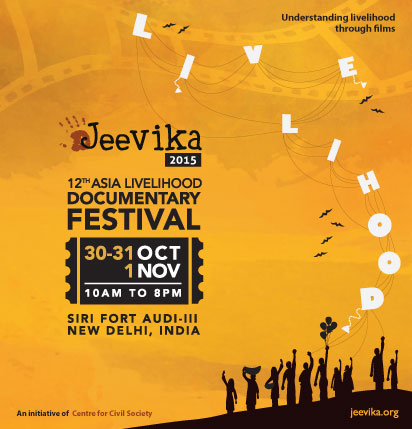| Filmmaker Type | Submission Fee |
| Professional Filmmakers | Rs 1000 / 25 US$ |
| Student Filmmakers | Rs 500 / 15 US$ |
| Others | Rs 1000 / 25 US$ |
Jeevika Film Festival
Jeevika Entry Fee | 2016
Jeevika Awards | 2016
Awards category and cash prize 2016
| |
| Best FEATURE Documentary Rs 50,000 (Above 30 Minutes) | Best SHORT Documentary Rs 40,000 (Below 30 Minutes) |
| Best STUDENT Documentary Rs 20,000 | Best CINEMATOGRAPHY Rs 10,000 |
| Best EDITING Rs 10,000 | Jeevika FREEDOM Award Rs 10,000 |
Submission FAQs
Festival Related FAQs01. How can I register online?Log onto the Jeevika Asia Livelihood Documentary Film Festival webpage here. Fill up the given entry form online. After you have completed the form, you will be redirected to the payment portal where you can pay your submission fee. On successful payment, you will be provided with an automatically generated payment receipt. You will also be a provided with an online reference ID, which you must note down safely. Please quote this ID in all your future correspondence to us. In case you cannot make the payment online, you may also send us your fee through cheques, demand drafts or wire transfers (See question “I CANNOT MAKE AN ONLINE PAYMENT. HOW ELSE CAN I SUBMIT MY FEE?” below) 02. How do I send you my film after registering online?You can send us your film via post/courier or deliver it in person at the following address: Centre for Civil Society A-69, Hauz Khas New Delhi India – 110016Please make sure that you send us TWO copies of your film on DVDs. The package must be clearly labeled, indicating your online reference ID, title of the film, name of the director(s) and duration of the film. If you have registered online, you MUST indicate your online reference ID, failing which we will not accept your film. We will send you an acknowledgement email upon receipt of your DVDs.
03. Can I submit my film online?No. You may only submit your documentary via post/courier or deliver it in person at the following address: Centre for Civil Society A-69, Hauz Khas New Delhi India – 11001604. I cannot make an online payment. How else can I submit my fee?We also accept payments through the following options:
We will send you an acknowledgement receipt after your payment has been processed successfully. Please note that we do not accept payments in cash. 05. I cannot register online. Is there an alternate way of registering?You can download the registration form here. After you have duly filled the form, you may send it to us via post/courier or deliver it in person along with TWO copies of your film on DVDs at the following address: Centre for Civil Society A-69, Hauz Khas New Delhi India – 110016Your DVDs must be clearly labeled, indicating the title of the film, name of the director(s) and duration of the film. We will send you an acknowledgement email upon receipt of your application. While it is not mandatory, it is highly recommended that you send all parts of our application together. This would reduce the time taken to review your application. You may also email the downloaded form to us at jeevika@ccs.in. Upon receipt of your form, we will email you with a reference number. You can then proceed to send us your DVDs, clearly quoting the reference ID, title of the film, name of the director(s) and duration of the film. If you have sent us your form through email, you MUST indicate your reference ID, failing which we will not accept your film. We will send you an acknowledgement email upon receipt of your DVDs. Fee submissions for applications sent via post/courier or delivered in person can be made through cheque, demand draft or wire transfer. You will receive an acknowledgement receipt via email after we have successfully processed your payment. Please do not directly deposit cheques into any of our bank accounts as they will not be acknowledged. 06. What are the submission deadlines and submission fees?Official Submission Deadlines: (a) PROFESSIONAL FILMMAKERS (b) STUDENT FILMMAKERS (c) OTHERS Please note that your documentary MUST arrive at our New Delhi office no later than the deadline for which you have registered. We will not view your film until the payment has been received. Therefore, we strongly suggest that you mail your documentary to us well in advance. We will not be responsible for any postal errors or delays. 07. My documentary was not selected last year. Can I submit it again?Once a documentary has been rejected, the panel will not review it again. You may, however, send us a new documentary. The new entry may include elements from a previously submitted documentary, but it must be significantly different from a previously rejected entry in order to be considered. 08. How old can my documentary be?The documentary should have been made in the time period as specified in the respective year rules. For Jeevika 2016: The documentary being submitted for the 2016 Festival consideration must have been completed within the year 2014 to 2016. If your documentary was completed prior to 2014, it is no longer eligible for submission. If your film’s production took place before 2014 but your final cut was not completed until 2016, your film is still eligible. 09. What is your preferred format for submission?Each documentary should be submitted to us on a single DVD. This DVD must be compatible with standard set-top DVD players. Please do not simply burn a QuickTime or AVI file to a disc as data. Please ensure that your disc plays in a standard DVD player before you mail it to us. We can only screen submitted documentaries on DVD-PAL format. 10. If my documentary includes non-english dialogue, do you require english subtitles?Yes. All non-English dialogue must be accompanied by English subtitles. If your entry is in English, you need not provide subtitles in any other language. We will be unable to screen your documentary if on-screen English subtitles are not included. 11. What should be the length of the film?2016 Jeevika: Asia Livelihood Documentary Festival has introduced limits of the running time of the film as awards will be given in different categoriges.
12. What types of documentaries are you looking for?OBJECTIVES: a) To document the livelihood challenges of the rural and urban poor across Asia. b) Identify and bring to light policies and social, religious and cultural practices which prevent people from earning an honest living and being an entrepreneur. c) To highlight the policy challenges of:
d) Advocate with the policy makers for changes in policies and with social leaders for changes in practices that can have far-reaching impacts on the lives of the poor.
Some key elements of a shortlisted documentary include, but are not limited to:
13. How many documentaries can I submit?You may submit as many documentaries as you like, but you must register each entry separately and send us each of your entries on a separate disc. Please do not submit multiple films on the same DVD. If we receive an application with more than one documentary on the disc, we will only consider the first one included. 14. Will you notify me if you do not receive my film?We will only acknowledge receipts of your application and payment. It is your responsibility to ensure that your complete application package is received by us before the deadline passes. 15. What happens if you are unable to get my DVD to play?When we receive your DVDs, we will test-run both of them at our office before we send them to the Board of Evaluators. In the event of a technical error in your DVDs, we will contact you to request another copy. In order to avoid such delays in processing your application, we strongly suggest you ensure that the disc plays well and is free from software bugs before you send it to us. 16. When will I find out if my film was selected?You will be notified about the selection/ non selection of your documentary during the 1st week of October. 17. If I submit my form as well as the fees but am unable to send you my film, can I get a refund?No. The submission fee is non-refundable. 18. Where does my submission fee go?The Jeevika Asia Livelihood Documentary Festival is organized by the Centre for Civil Society (CCS) under their larger Law, Liberty and Livelihood Campaign. The Centre for Civil Society is an independent, non-profit, research and educational organization devoted to improving the quality of life for all citizens of India by reviving and reinvigorating civil society. CCS conducts research and organizes programs, seminars and workshops on innovative community and market based ideas for critical public policy issues facing India today, particularly in the areas of Education, Livelihood, Governance and Environment. All proceeds from the Jeevika Documentary Festival will aid CCS’s efforts to organise such programs as well as future Jeevika Documentary Festivals. For more information on many programs, visit us at www.ccs.in 20. I made my documentary when I was a student. I have now passed out of my college. Which category should I enter into-student or professional?If you want to enter the competition as a student, you will have to provide a Bonafide certificate or any other proof mentioning that you made the documentary while you were a part of an educational institute. Otherwise you can enter the competition as a Professional Entry. 21. What happens to my Documentary if it does not get selected for the final screening?It is a pleasure of CCS to be receiving your valuable work and it gives us a lot of knowledge and information not only in terms of Livelihood issues but also in terms of creativity and film making. We take this opportunity of sharing your work with others and keep all the entries that we receive for documentation. These documentaries are showcased in various workshops, seminars and programmes organized by CCS. 22. If the deadline is extended, would late submission fee still be applicable?Yes. If the deadline is extended, late submission fee will still be applicable. 23. Do I get a receipt of my payments (Submission fee)?In case you fill the online submission form and make the payment online, you get an automatic generated receipt. Otherwise, in case of cheque and cash payments, we notify you by sending an email. |
For further queries, not covered under FAQs, drop us an email at jeevika@ccs.in and we will get back to you within 24 hours.
Jeevika on Road
Introduction
Beyond Jeevika: Asia Livelihood Documentary Festival the organizers screen select shortlisted films as part of the Livelihood Campaign in seminars, various schools, colleges, cultural centers, organizations and at festivals in different parts of the country and the world through the “Jeevika on Road.”
This initiative is an attempt to spread across the message to eradicate market entry & exit barriers to promote individual livelihood. The initiative advocates for changes in policies with social leaders but also for changes in practices that can have far-reaching impacts on the lives of the poor.
A platform to bring wave of change through reaching to youth
If you also want to take this forward in your college/school/institute/organization/centre write to us at jeevika@ccs.in or call us at +91-11-26537456/ 26521882/ 41607006/ 41629006
Year 2015: Jeevika on Road reached around 350 students across 5 campuses in Delhi NCR.
Screenings:
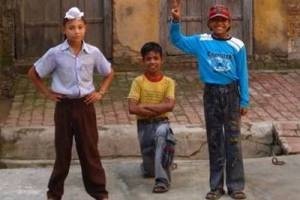 | 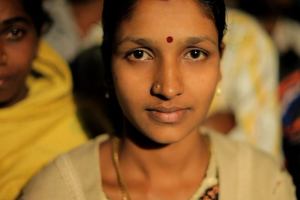 | 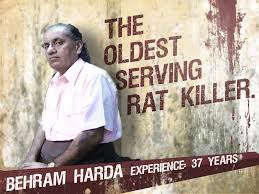 |
| Wagha Border by Supriyo Sen | Banking for change by Adrew Hinton | Rat Race by Miriam Chandy Menacherry |
Glimpse from Jeevika on Road 2015
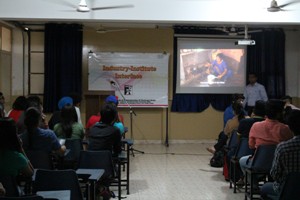 | 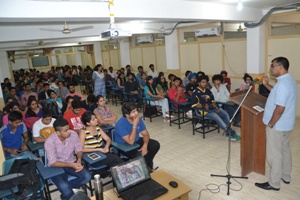 | 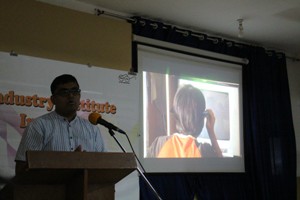 |
| Interacting with students at Madhubala Institute of Communication & Electronic Media (MBICEM) | ||
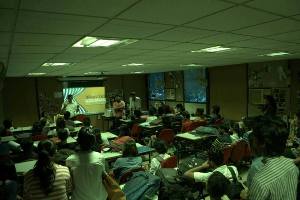 | 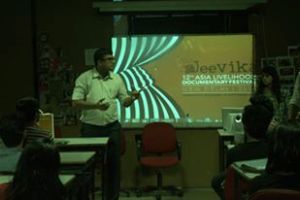 |
| In discussion with Flim Club members at National Institute of Fashion Technology (NIFT), New Delhi | |
 |
| Screening of documentary Rat Race by Miriam Chandy Menacherry; followed by the discussion on the “Role of Social Change through Public Policy at Shiv Nadar University(SNU), Noida with Eco Society members.” |
Winners of Jeevika 2015
| Best LONG Documentary | Les Derniers hommes éléphants – Last of the Elephant Men By Daniel Ferguson and Arnaud Bouquet Duration: 1:26:00 |
| Filmed over several years in stunning and remote locations across Cambodia, Last of the Elephant Men is an elegy for the domestic elephant in Asia and a plea to protect the remaining wild population. The story follows three Bunong from different generations – each showcasing fascinating and moving aspects of the bond between people and elephants. Ultimately the themes of these stories apply to many traditional cultures – a microcosm for the link between biological and cultural diversity and the pressures they both face worldwide. | |
| Best SHORT Documentary | Dancing Shoes by Rishebh Batnagar and Jogavindra S. Khera Duration: 0:26:00 |
| There is a completely different side to the tale of this slum. Dharavi is home to numerous success stories. “Dancing Shoes” follows the inspiring journey of 34-year-old shoemaker, Jameel Shah. The son of a poor Bihari farmer, this young man never gave up on his Bollywood dreams. Today, from a tiny 10×10 foot room in Dharavi, Jameel constructs world-class dance shoes for celebrities, including: Katrina Kaif, Kajol, Priyanka Chopra, Abhishek Bachchan, Farah Khan, HrithikRoshan, Ranbir Kapoor and international superstar Kylie Minogue. | |
| Best STUDENT Documentary | Sagar Manav by Tanumoy Bose Duration: 0:21:00 |
| A lighthouse attendant, Chaman Bhai Charlie, lives on an island in the Arabian Sea, making his livelihood. As he spends time there all by himself, the days seem to never pass and nights are lonely and cold. | |
| Caste on the Menu Card by Ananyaa Gaur, Anurup Khillare, Atul Anand, Reetika Revathy Subramanian & Vaseem Chaudh Duration: 0:21:00 | |
| The film delves into the idea of food as a site of exclusion by focusing on beef-eating practices in Mumbai. It attempts to portray the prevalence of caste differentiations as seen in the food choices of people in the city, and touches upon concerns related to livelihood, social inclusion and human rights. By tracing the mythological and historical roots of the meat-eating culture in our country, the film discusses the hierarchy maintained by Brahminical preferences and its intended subversions. This is seen in the stand taken on dealing with the political economy of the leather and meat industries. The film follows the ruptured background of universities’ caste politics over the demand of inclusion of beef in institutions. It observes that many restaurants in Mumbai offer beef delicacies, but off the menu. Thus, the film title reads ‘Caste on the Menu Card’. | |
| Best CINEMATOGRAPHY | Tyres by Kyaw Myo Lwin Duration: 0:30:00 |
| A tyre recycling workshop in South Okkalapa in Myanmar’s former capital of Yangon is a site of multiple uses and multiple deaths, for this is the place where defunct tyres are transformed from their original shape and use, and are reborn into new and completely different lives. Filmed almost entirely in black-and-white, this observational documentary gently explores a community of tyre cutters and recyclers, young and old, male and female, as they create with their super-sharp blades, careful eyes and skilful strokes, buckets, brushes and slippers from discarded rubber tyres. | |
| Best EDITING | Les Derniers hommes éléphants/Last of the Elephant Men by Daniel Ferguson and Arnaud Bouquet Duration: 1:26:00 |
| Filmed over several years in stunning and remote locations across Cambodia, Last of the Elephant Men is an elegy for the domestic elephant in Asia and a plea to protect the remaining wild population. The story follows three Bunong from different generations – each showcasing fascinating and moving aspects of the bond between people and elephants. Ultimately the themes of these stories apply to many traditional cultures – a microcosm for the link between biological and cultural diversity and the pressures they both face worldwide. | |
| JEEVIKA FREEDOM Award | Caste on the Menu Card by Ananyaa Gaur, Anurup Khillare, Atul Anand, Reetika Revathy Subramanian & Vaseem Chaudhary |
| The film delves into the idea of food as a site of exclusion by focusing on beef-eating practices in Mumbai. It attempts to portray the prevalence of caste differentiations as seen in the food choices of people in the city, and touches upon concerns related to livelihood, social inclusion and human rights. By tracing the mythological and historical roots of the meat-eating culture in our country, the film discusses the hierarchy maintained by Brahminical preferences and its intended subversions. This is seen in the stand taken on dealing with the political economy of the leather and meat industries. The film follows the ruptured background of universities’ caste politics over the demand of inclusion of beef in institutions. It observes that many restaurants in Mumbai offer beef delicacies, but off the menu. Thus, the film title reads ‘Caste on the Menu Card’. |
EduDoc 2015 Documentaries Received
| Sl No | Name | Duration (min.) | Director |
| 1. | 3Dexter : 3D Designing and Printing Curriculum in Schools | 3:50 | Samarth Vasdev |
| 2. | ABC campaign | 4:56 | Karan Mahan |
| 3. | Adhyayan | 5:00 | Sumit Sisodiya |
| 4. | Anu | 5:00 | Prasanta |
| 5. | Barkas-My grandfather was here | 45:45 | Faisal Alotaibi |
| 6. | Celebrating Childhood | 4:00 | Rudraksh Monga |
| 7. | Education with a Kick | 4:04 | Tejasvi Momaya |
| 8. | Kamla; A change-maker at Arohi Bal Sansar | 4:53 | Sheeba Sen |
| 9. | Lord Krishna Public school | 3:34 | A S Mahajan |
| 10. | Monochrome Spectrum | 4:18 | Rahul Saini |
| 11. | Nurturing Careers | 5:00 | Rahul Saini, Surbhi Mittal |
| 12. | Pillar No. 5 | 5:00 | Mohit Hassija |
| 13. | Radiant Kids | 3:49 | Tamanna Sharma |
| 14. | Sab Ke Liye Shikhsha | 5:00 | Somaya Iqubal |
| 15. | Samagra Vigyan | 4:49 | Ananya and Vaibhav |
| 16. | Sandikshan – Alor Pathajatrir | 4:58 | Pranab Narayan Sarkar |
| 17. | Sapne | 4:55 | Kashif Noon Siddique |
| 18. | Siksha Jyoti | 4:00 | Somaya Iqubal |
| 19. | STORY GHAR – Learning through storytelling | 4:59 | Nithil Dennis |
| 20. | Sylvester Bhaiya | 5:00 | Harsh Vardhan Singh |
| 21. | Traffic Signal | 4:37 | Sumaya Iqbal |
| 22. | Under bridge school | 4:50 | Abhishek Jain |
Jeevika 2015 Schedule
 | ||||||||||||||||||||||||||||||||||||||||||||||||||||||||||||||||||||||||||||||
Register TODAY!Join us for the screening of top entries from across the world that focus on livelihood issues in Asia on 30, 31 October and 1 November 2015 at SIRIFORT AUDI III, AUGUST KRANTI MARG, NEW DELHI (Entry from Gate No. 5). FREE ENTRY! Click here to register. We look forward to seeing you there!
| ||||||||||||||||||||||||||||||||||||||||||||||||||||||||||||||||||||||||||||||
| *: Non-competitive entries, in collaboration with Al Jazeera | ||||||||||||||||||||||||||||||||||||||||||||||||||||||||||||||||||||||||||||||
 | ||||||||||||||||||||||||||||||||||||||||||||||||||||||||||||||||||||||||||||||
